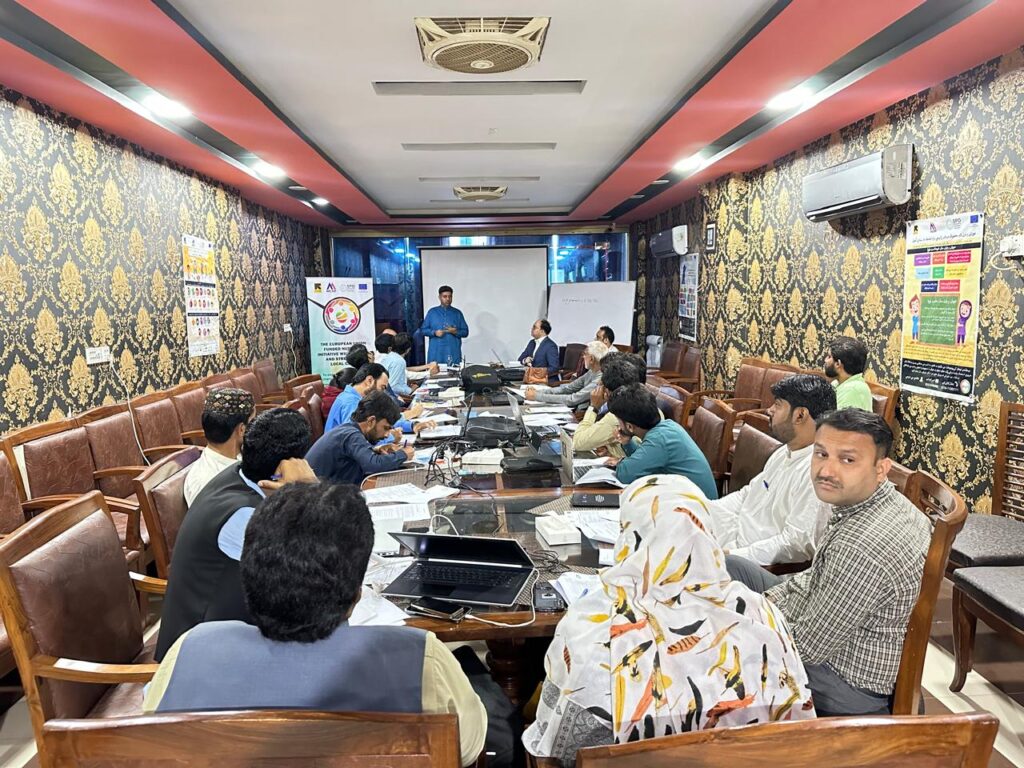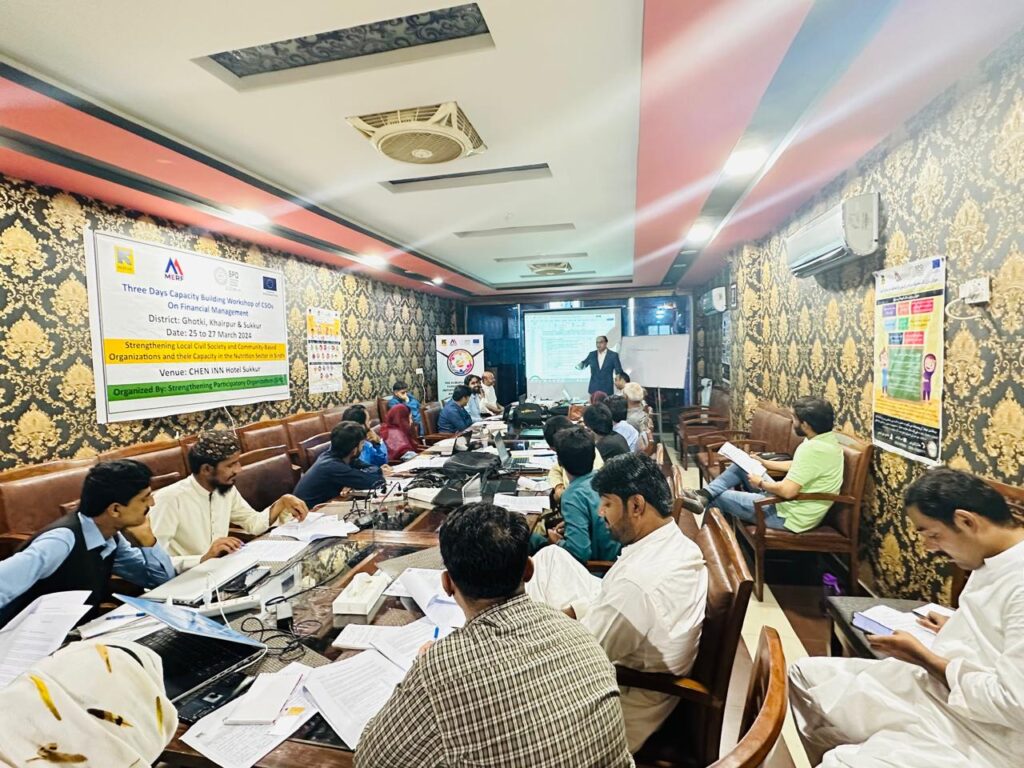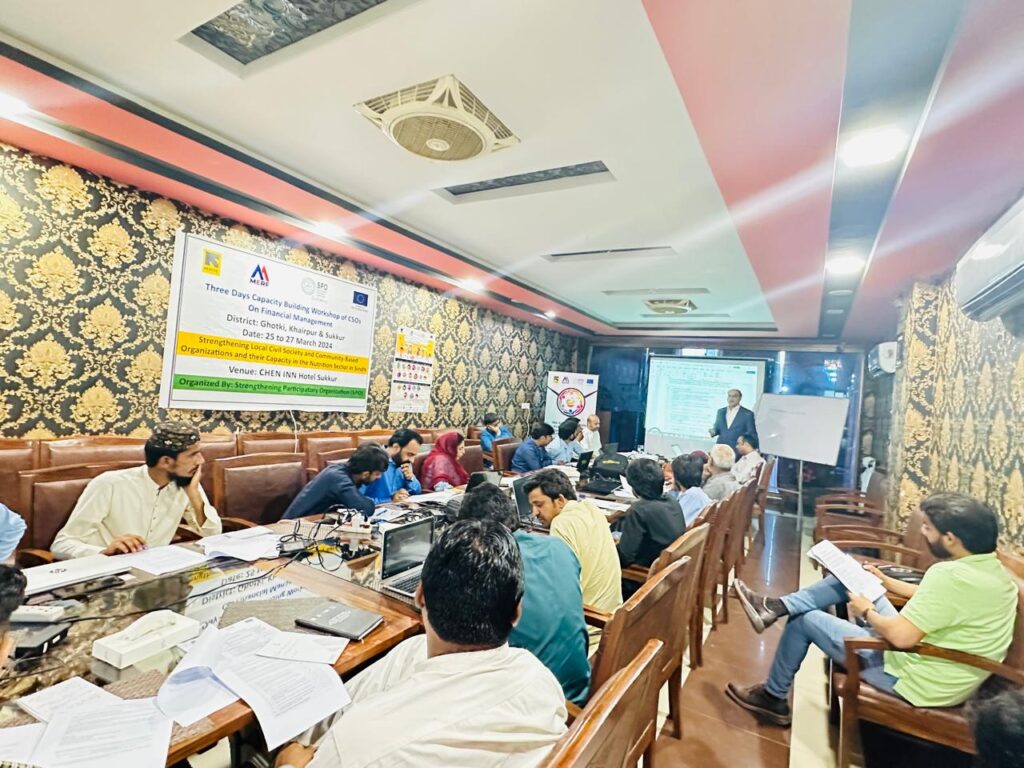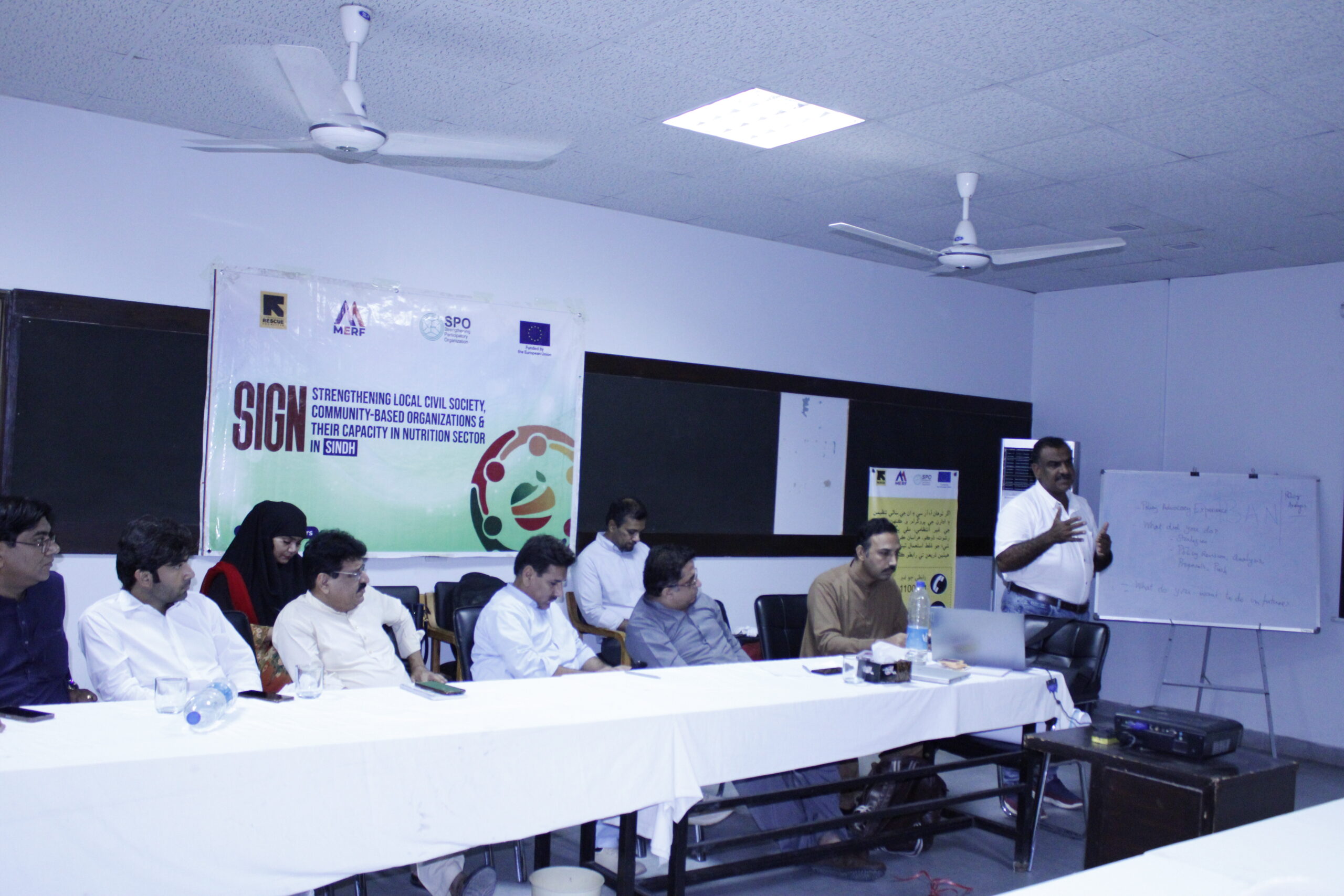
Financial Management Training
SPO, in partnership with IRC, organized a 3-day Financial Management training workshop aimed at enhancing the financial management skills of key staff members from CSOs. The goal of the workshop was to ensure that participants acquire the necessary skills to maintain transparency, accountability, and efficiency in their organizations’ financial operations.
The training, held in two batches in March 2024, focused on equipping participants with the knowledge to enhance financial management practices within their organizations. Topics covered during the workshop included budgeting, financial reporting, internal controls, grant management, and compliance with donor requirements.
The workshop was structured into eight comprehensive sessions that addressed all critical aspects of financial management. These sessions included practical training on preparing financial statements such as income statements, balance sheets, and cash flow statements. Participants also gained the ability to interpret financial reports, analyze financial trends, and identify key performance indicators, which are essential for effective decision-making.
Additionally, the workshop covered budgeting techniques like forecasting and variance analysis, which are vital for managing both organizational and project-specific budgets. Participants gained an understanding of financial reporting standards and the regulatory framework governing non-profit organizations, including tax laws and financial reporting standards. The workshop also emphasized financial compliance, ensuring CSOs fully understand and adhere to the applicable financial regulations and standards.
A key focus of the training was promoting transparency and accountability in financial management. Participants learned how to enhance transparency through regular financial reporting and open communication with stakeholders. They also gained a deeper understanding of ethical financial practices, which are crucial for maintaining financial integrity within CSOs.
The training further emphasized developing internal control systems to safeguard assets and prevent fraud or misuse of funds. Participants were equipped with practical tools to implement robust internal controls, thus ensuring that the financial resources are properly managed and utilized.
By the end of the training, participants were proficient in managing finances within their organizations. These newly acquired skills are vital for ensuring the efficient use of resources, which, in turn, helps organizations achieve their missions, particularly in tackling malnutrition in Sindh.
SPO’s Financial Management Training program is designed to strengthen the financial capacity of NGOs. Its objective is to enhance participants’ skills in budgeting, financial reporting, internal controls, and compliance, ensuring that organizations maintain transparency, accountability, and sustainability in their financial operations. By empowering NGOs with these skills, the program helps them manage resources effectively and maximize their impact on the communities they serve.
Training Objectives and Key Components
The Financial Management Training aims to:
• Provide participants with a solid understanding of financial management principles.
• Enhance their skills in budgeting and financial reporting.
• Foster a culture of accountability and transparency in financial management practices.
Key components of the training include:
• Financial Basics: Participants learn essential skills in budgeting, accounting, and cash flow management.
• Accountability & Transparency: The importance of transparent financial practices for building trust with donors and stakeholders.
• Internal Controls: Strategies for risk management and fraud prevention to safeguard organizational assets.
• Compliance: Understanding legal and regulatory requirements for NGOs to ensure financial compliance

Financial Management Training: Refers to educational programs designed to improve the financial knowledge and skills of individuals within organizations, particularly non-governmental organizations (NGOs), to enhance their ability to manage finances effectively and responsibly.
NGOs: Non-governmental organizations, typically non-profit entities that operate independently of government control. These organizations often focus on social, cultural, environmental, or humanitarian causes.
Budgeting and Financial Reporting: The process of planning and allocating financial resources for an organization’s operations and projects, and the creation of detailed financial statements that show an organization’s financial performance and position.
NGO Financial Accountability: Ensuring that NGOs manage their funds responsibly and transparently, with regular reporting and audits to demonstrate how funds are being used, thus building trust with donors and stakeholders.
Internal Controls in NGOs: Refers to the systems and processes put in place within NGOs to ensure proper handling of financial resources, prevent fraud, and ensure that financial activities are conducted in a regulated and responsible manner.

Compliance in Financial Management: The adherence to legal and regulatory requirements governing the financial operations of NGOs, ensuring they follow tax laws, reporting standards, and donor agreements.
Risk Management and Fraud Prevention: Identifying and mitigating potential financial risks that could harm an NGO’s financial health, as well as implementing safeguards to prevent fraud or mismanagement of funds.
Transparency in NGO Finance: The practice of openly sharing financial information, including income, expenditures, and financial statements, to build trust with donors, stakeholders, and the public.
Financial Sustainability for NGOs: The ability of an NGO to manage its finances in such a way that it can continue to operate and achieve its goals over the long term, through effective budgeting, revenue generation, and cost management.
Donor Confidence and Financial Practices: Refers to the trust that donors have in an NGO’s ability to use funds effectively and transparently. Strong financial practices contribute to maintaining and increasing donor confidence.
NGO Financial Capacity Building: The process of enhancing the financial management skills and systems within an NGO, ensuring that the organization has the tools and knowledge to manage funds efficiently, comply with regulations, and achieve its objectives.




